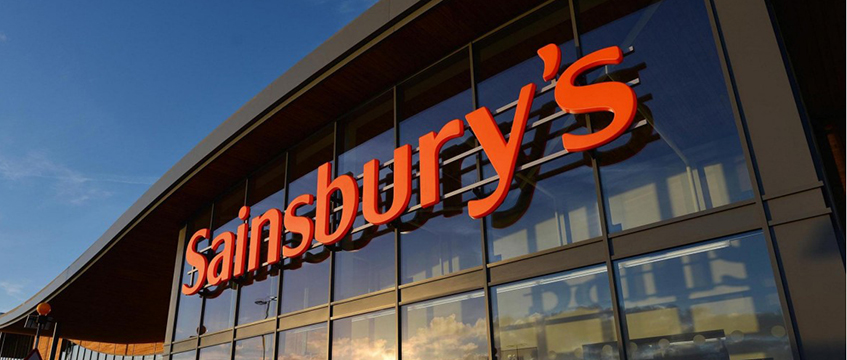The proposed £12bn merger of supermarket chains J Sainsbury’s and Asda will not result in store closures, according to an announcement made by Sainsbury’s this morning.
The group said the £500m-plus of EBITDA synergies expected through the merger “are comprised largely of buying benefits, opening Argos in Asda stores and operational efficiencies.”
It added that “there are no planned Sainsbury’s or Asda store closures as a result of the combination” which will result in a portfolio of more than 1,000 stores.
However, the announcement also noted that the merger would “reduce Sainsbury’s lease-adjusted leverage, benefiting from Asda’s high freehold property ownership and pension-free balance sheet, protecting the interests of hundreds of thousands of Sainsbury’s and Asda pension holders.”
Combined, the companies occupy more than 2,800 stores in the UK, which could total more than 118m sq ft of prime retail space across superstores and smaller convenience locations, according to Radius Data Exchange. The deal would also include Argos stores, which was acquired by Sainsbury’s in 2016.
The enlarged group would overtake Tesco as the UK’s largest supermarket. Together, the companies had a 2017 revenue of around £51bn in 2017. Sainsbury’s store portfolio is mainly in the south, the Midlands and Northern Ireland, while Asda stores are centred on the north of England, Scotland and Wales. It is expected that the proposed merger would be scrutinised by the Competition & Markets Authority.
The proposed merger has raised fears in the property sector of potential consolidation in the two companies’ retail and warehouse portfolio.
Retailer Bill Grimsey, former chief executive of Wickes, Iceland, Booker and Focus DIY, wrote on Twitter that the superstore market was “overspaced” and the deal was “bad news” for the property sector in the medium term.
In a joint statement, J Sainsbury and Asda owner, Walmart, said: “The retail sector is going through significant and rapid change, as customer shopping habits continue to evolve. This has led to increased competition across grocery, general merchandise and clothing, as customers seek ever greater value, choice and convenience.
“Bringing Sainsbury’s and Asda together will result in a more competitive and more resilient business that will be better able to invest in price, quality, range and the technology to create more flexible ways for customers to shop.”
A merger would “enable investment in areas that will benefit customers the most: price, quality, range and creating more flexible ways to shop in stores and through digital channels, across Sainsbury’s, Asda and Argos,” the prospective partners said. They added: “We expect to lower prices by circa 10% on many of the products customers buy regularly.”
The merger would result in Walmart holding 42% of the issued share capital of the combined business and receiving just under £3bn of cash (subject to customary completion adjustments), valuing Asda at around £7.3bn on a debt-free, cash-free and pension-free basis. At the time of completion of the merger, Walmart will not hold more than 29.9% of the total voting rights in the combined business.
To send feedback, email louisa.clarence-smith@egi.co.uk, or tweet @louisaclarence or @estatesgazette.











